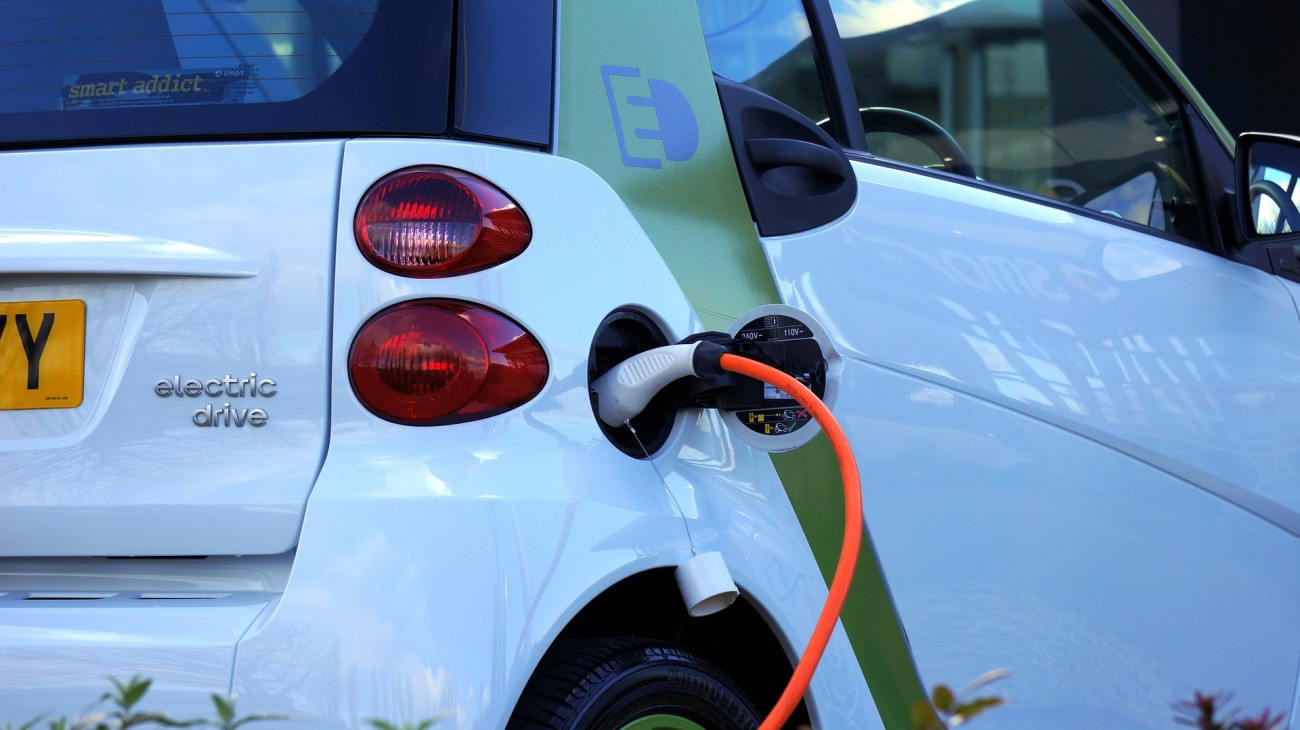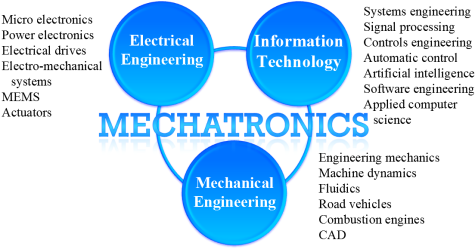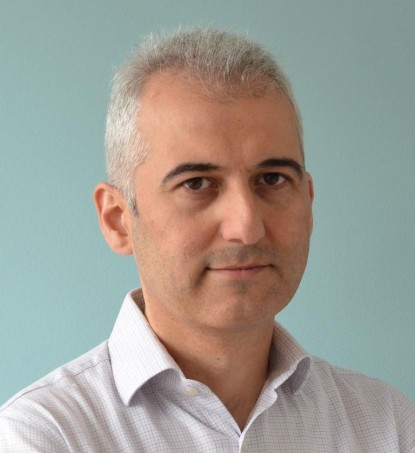Mechatronics is a multi-disciplinary field of studies in the engineering sciences. It consists of mechanical engineering (Department of Mechanical Engineering); precision engineering; electrical engineering and information technology (Department of Electrical Engineering and Information Technology (etit)). It addresses the design and production of new, integrated, electro-mechanical systems with automated and intelligent functions.
It is impossible to imagine our everyday life without mechatronics, regardless of whether mechatronic systems make driving a car easier and safer by means of active chassis control or safety measures such as anti-lock and anti-skid systems or an electronic stability program. They also support fast-moving machine parts without touching and consequently without friction serving as active magnetic bearings. They can be mass-produced micromechanical systems serving as tiny grippers or pumps on a small silicon wafer.
These systems measure signals by means of sensors, process these signals by means of embedded micro-computers and interact with the process by means of electro-mechanic, pneumatic or hydraulic actuators. The functionalities are not only defined by the fundamental mechanic design, but also by the real-time software-embedded control algorithms. Thus, mechatronics requires comprehensive training, ranging from the fundamentals of mechanical engineering and electrical engineering to applied computer science and methods of computational intelligence.
The “MIT Technology Review” has identified Mechatronics as one of the top ten emerging technologies that will have a lasting effect on our lives and our world.
The interdisciplinary character of Mechatronics requiresentirely new – simultaneous – training including electrical engineering, information technology, mechanical engineering and computer science. TU Darmstadt has acknowledged this need by establishing a new, consecutive Bachelor's/Master's degree programme in Mechatronics.
Research at the pulse of time with high practical relevance
The Bachelor’s degree programme in Mechatronics and especially the Master’s degree programme have a strong research orientation and are supported by strong research groups and institutes. While the fundamental lectures are rather theoretical by nature, the more application-related compulsory elective lectures benefit strongly from the intensive research activities. Professors also report about current research projects in the appropriate lectures. Furthermore, students are integrated actively in the research of the respective research groups and institutes when they work on their Bachelor’s or Master’s thesis.
The research groups and institutes involved in the degree programmes maintain intensive contacts with other research institutions in Germany and abroad. The TU Darmstadt offers many exchange programmes inside and outside of Europe, allowing students to spend some time of their studies at a foreign University and to further develop their language skills and intercultural competence.
Brilliant prospects on the job market
In recent years, the work of engineers has increasingly shifted away from the development of new technical components and equipment, focusing more on the design, implementation and integration of complex hardware and software systems. This trend is also witnessed by the VDE Ingenieurstudie 2005.
Innovations are no longer primarily achieved by an improvement of the purely electro-mechanical design but by the implementation of new features which are made possible by integrating information processing units. This requires engineers that have a high degree of process-specific knowledge on the one hand, but can also work on the system and software level on the other hand.
In the next 5 to 10 years, roughly 80 % of all German companies expect a shortage of engineering applicants according to a study of ZVEI. On the German job market therefore, there is an enormous shortage of engineers. In addition to the far too low number of prospective students, the shortage is exacerbated by the fact that many engineering and automotive companies are creating more and more added value by mechatronic functions, e.g. like of intelligent assistance systems for instance, and hence, set up their own research departments. Every year, lots of new jobs are created in the automotive industry. As mentioned above 90 % of all innovations are determined by mechatronics, electronics and intelligent information processing.




